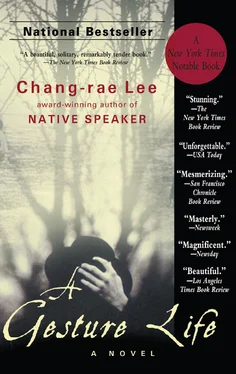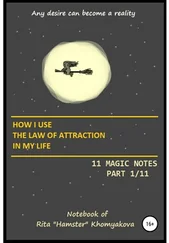“Lieutenant, sir,” he addressed me gloomily, “I’ve been thinking all afternoon about what’s to come in the next days.”
“You mean about the expected offensive from the enemy?”
“I suppose, yes, that too,” he said. “There’s been much radio traffic lately. Almost all concerning where they’ll strike, and when.”
“Near here, and soon,” I replied, echoing what Captain Ono had pithily said to me.
“Yes, sir,” Endo said, “that seems to be the conclusion. But what I was thinking of mostly again was the volunteers.”
“You’ll have your due turn,” I said, annoyed that he was still preoccupied with the issue. “It will be a day or two or three, whatever becomes determined. In the meanwhile you should keep yourself busy. It’s an unhealthful anticipation that you are developing, Corporal. You must command yourself.”
“But if I can make myself clear, sir, it’s not that way at all. I’m not thinking about when I’ll see one of them. In fact, sir, I’m almost sure of not visiting. I won’t seek their comforts at all.”
This surprised me, but I said anyway, “Of course you’re not required to. No one is.”
“Yes, sir, I know,” he said softly, following me as I made my way on the path that headed back toward the main encampment, directly past Colonel Ishii’s hut. We walked for some time before he spoke again. “The fellows in the communications and munitions areas drew lots this morning, to make things orderly and have some excitement as well by predetermining the order of the queue, and by sheer chance I took first place among my rank. There was much gibing and joking about it, and some of the fellows offered me cigarettes and fruits if I would trade with them. I had to leave the tent then, and they probably thought I was being a bad winner.”
We had reached the point on the path that was closest to the hut. The sentry noticed us and let us pass; he was a private I had recently treated for a mild case of dysentery. Again there was hardly a sound, save the sharp, high songs of the nighttime fauna. The hut, with its thatched roof and roughly hewn veranda, was the picture of modesty and quiescence.
I asked, “So why did you leave?”
“Because I didn’t want to so freely trade my place in front of them,” he said, his voice nearly angry. He gazed anxiously at the hut, as though the humble structure were some unpleasant memorial. “You see, sir, I’ve decided not to visit those girls. I don’t know why, for sure, because it’s true that every day I’ve been in this miserable situation I’ve been thinking about being with a woman, any woman. But yesterday after I saw them arrive in the camp I suddenly didn’t think about it anymore. I don’t know why. I know I must be sick, Lieutenant. I do in fact feel sick, but I didn’t come to ask for any treatment or advice. I don’t want my lot anymore but I realized I didn’t want any of the others to have it, either. So I thought I could ask simply that you hold it for me, so none of the fellows can get to it. Some of them would try to steal it from my things, and I’m afraid I’d misplace it on my own.”
He then showed me a torn-edged chit, a tiny, triangular bit of rice paper with a scribble on one side. It was nothing, or less than nothing, not even something to be thrown away. His fellows would certainly just push and jostle for their place when the time came, chits or not. But the corporal handed the scrap to me as if it were the last ash of an ancestor, and somehow I found myself cradling it. I thought for a moment he had deceived me about his virginity and was suffering from something like an untreated syphilitic infection, but I saw nothing but the straining earnestness of his narrow, boyish face. I knew he was unsteady, but now I was quite certain his mind had descended on a most infirm path. His only tempering note was how he had described the present time as a “miserable situation,” an appraisal that seemed highly regular, if somewhat disloyal to our morale and cause, and which, no doubt, was undeniably true.
I unbuttoned the chest pocket of my shirt and deposited the bit of paper. I said nothing to the corporal, for I did not know what I could say or otherwise do except attend to his present circumstance as any decent and clear-thinking medical officer would. He was genuinely grateful and relieved, and he bowed almost wistfully before me, making me feel as though I had indeed come to his aid, that I had helped save him from whatever fate he supposed would befall him were he to visit the ones delivered for our final solace and pleasure. And I recall understanding this last notion. For although it was true the talk throughout the camp was still of the glorious brightness of our ultimate victory and its forever dawning reach, the surer truth as yet unspoken was that we were now squarely facing the dark visage of our demise.
Famous, of course, is the resolve of the Japanese soldier, the lore of his tenacity and courage and willingness to fight in the face of certain death. But I will say, too, that for every man who showed no fear or hesitance, there were three or four or five others whose mettle was as unashamedly wan and mortal as yours or mine. As the defenders of the most far-flung sector of the occupied territory, we understood there was little question of the terrible hours ahead of us, and it was a startlingly real possibility that every man in the camp, every soul one looked upon, would soon be dead. This, I know, was a constant thought of mine, enough that my dreams were wracked nightly by the burden of it. And perhaps even more than my own death, my nightmares spelled the chance of Captain Ono and the few other medical personnel all being killed, and that among the scores of the horribly wounded, I’d be the lone surviving medical officer, the last hope of the broken and dying.
Corporal Endo seemed all too beleaguered to me, and I began to guide him quickly past the commander’s hut, his gaze almost rigidly locked upon the shuttered windows. We had gone past the hut by some thirty paces when all of a sudden he grabbed me roughly by the shoulder.
“Lieutenant…”
I looked up and saw that the door was open, and that the figure of a man stood out on the open porch, his hands perched on his hips. He seemed to be surveying the darkened compound, and the corporal and I both stopped in our tracks, trying not to make a sound. From the silhouette it was clearly Colonel Ishii, with his thick torso and bowleggedness and the distinctly squared-off shape of his head. He was naked, and he was sonorously inhaling and exhaling, deeply up from the belly. From our angle we could glimpse as well inside the two-room house, but the only sight was a clothes trunk against a far wall and a few lighted candles set atop it. There was no indication of anybody else being inside, no sight of the girls or the house servant or Captain Ono, who besides being the head physician was also something of a confidant to the commander, his personal surgeon and counsel. Many evenings after supper Captain Ono could be seen on his way to the commander’s house, and when directives from central headquarters in Rangoon had come concerning preparations for the inevitable enemy offensive, the doctor was always included in the briefings.
The commander himself was someone whom these days people might call a “health nut,” as some of his ministrations were quite peculiar. For example, he would exercise vigorously in the early mornings, an intense regimen of calisthenics and stretches that would challenge a seasoned drill sergeant. Following this, sweating like a plow ox, he would allow himself to be bitten by descending swarms of mosquitoes, as a way of bleeding himself. Out behind the hut, he would cover only his face and neck and let the ravenous insects feed freely on his belly and chest and back. One would assume he’d have suffered terribly from malaria, as a large number of the men did, but he seemed perfectly fit right up to the day we received news of the Emperor’s surrender, when he committed ritual suicide. Captain Ono made it a point to describe the commander’s daily methods to me, I believe, in the hope that I would find them intimidating and remarkable, and back then I probably did consider them so. I was deeply impressionable and unassuming and full of dread, knowing little else but whatever was provided to me by professional men like the doctor, who were authoritative and born into an elite caste, and who seemed the very incarnation of our meticulously constructed way of life.
Читать дальше











![William Frith - John Leech, His Life and Work. Vol. 1 [of 2]](/books/747171/william-frith-john-leech-his-life-and-work-vol-thumb.webp)
![William Frith - John Leech, His Life and Work, Vol. 2 [of 2]](/books/748201/william-frith-john-leech-his-life-and-work-vol-thumb.webp)